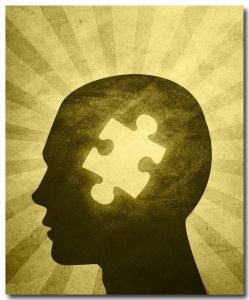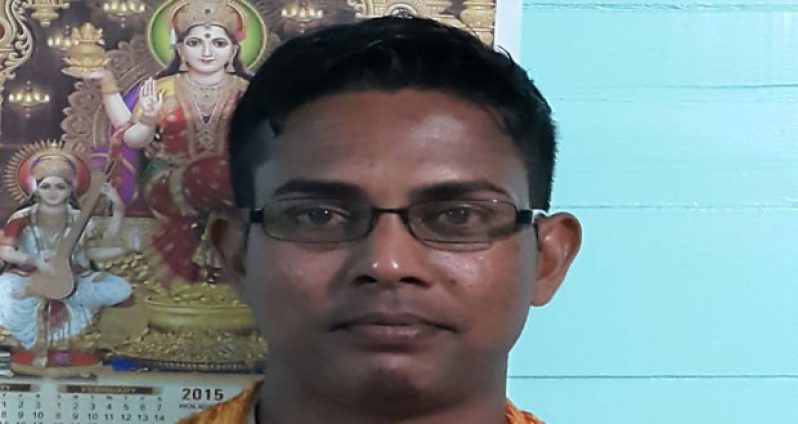TO A large extent, there is still some confusion among members of the public regarding the difference between a mental health problem and being mentally unstable. These two illnesses are commonly viewed as one and the same.They are not. The simple difference being that persons with mental health issues experience physiological difficulty and impairment in cognition, which hinder their ability to reason and function in a logical manner.

The Pan American Health Organisation (PAHO, 1999) defines mental health as a state of emotional and social well-being in which the individual can cope with the normal stresses of life and achieve his or her potential. It is a result of a complex interplay of biological, psychological, social, environmental, and economic factors.
Good mental health is more than the absence of mental illness; it is a complete sense of well-being and quality of life on all levels, the United Nations body on health says.
Victims who are mentally unstable, a condition which is referred to as “mad”, also have physiological difficulty, but it is due to a general medical condition. An example is neurotic disorder.
According to the draft National Mental Health Strategy for Guyana 2015-2020, between 78,000 and 114,000 Guyanese are suffering from a mental disorder and require some level of mental health care service. In addition, 20,000 Guyanese suffer from severe mental illness.
Unipolar depression is the fifth greatest contributor to the disease burden in Guyana; and suicide, a mental health issue, is the leading cause of death among Guyanese.
Deodatt Muridall Tillack, a clinical psychologist and social worker, said that, in the line of his work, he interacts with hundreds of people on a daily basis. He believes that if a careful study is done, it would probably reveal that far more than 114,000 people in Guyana suffer from a mental disorder.
PAST EVENTS
A mental disorder, he explained, is caused mainly by past event(s) in a person’s life and by unfulfilled expectations. Typically, a person with mental health issues oscillates between feelings of happiness and sadness; is confused in thinking; withdraws from friends; is unable to cope with daily problems; and has trouble relating to situations and people.
In treating affected persons, Tillack said, it is important to first identify the symptoms of their behaviour and their circumstance. These, he said, are important in diagnosing the cause of illness.
Tillack, who holds a Bachelor’s of Science Degree in Psychology from the American Peace University on Sheriff Street in Georgetown, told the Guyana Chronicle that many persons who seek psychiatric help are not mad, but their illness is due to a particular situation. In most cases, he said, it is a matter of trust, or a matter of the heart.
A common example, he said, is a person doing a good with the high expectation of receiving a reward. The unmet expectation often results in depression, a blow to the person’s self-esteem, and causes the person to lack confidence in his/her actions.
Persons experiencing these feelings, the psychologist said, must seek professional help, since mental disorder does not improve on its own, and can get worse over time, if left untreated.
Damien Corvinus, 26, a student of the University of Guyana, did not take any chance when a problem in his home began to take a toll on him. Corvinus’s father is divorced from his mother, and from time to time he displayed symptoms of abnormal behaviour. According to the young man, his father would be “loudly speaking to himself” and does other strange things, but “does not look like a person who is mad”.
Corvinus, who had a “rough” childhood, as he puts it, said he soon found himself doing the same things as his father (speaking loudly to himself), and even more. About a year ago, he told this publication, due to his own problems and taking on the issues his father was going through, he began experiencing extreme mood swings.

He said he would, at times, scream at his fiancée; punch the wall, have bouts of anxiety, feel very uncomfortable, and have great difficulty sleeping. The young father of one told the Chronicle that he happened to meet Tillack at a gym, and through the advice of the psychologist, he started to return to a state of normalcy.
Tillack related that when he met Corvinus, he looked withdrawn and unapproachable; but when he spoke with him, he (Corvinus) was a far different man from the person he looked. On examining the young man’s condition, Tillack diagnosed the problem as agitated depression. A person with agitated depression experiences feelings of agitation, anger, irritation and depression all at once.
Corvinus was able to persuade his father to seek treatment; and with the help of Tillack, both men today have returned to a comfortable state of mental semblance.
THE ELECTIONS
Guyana recently had Regional and General Elections, and from all indications, it was quite a good thing for members of the business community when the elections were over. At elections time there is a slowdown in business.
According to Tillack, many do not know that the elections period also took a toll on the mental state of the electorate – those who are deeply swayed by the political leaders they support.
During counting of the ballots, the leaders of both the People’s Progressive Party/Civic (PPP/C) and the coalesced parties of A Partnership for National Unity and the Alliance For Change (APNU+AFC) told their supports they were confident of winning the elections. Many supporters of the PPP/C had high expectation that their party would have won the elections, and some never harboured the thought that their party would have suffered defeat at the polls.
Tillack said many were so confident that the PPP/C would have won that the loss triggered a feeling of deep disappointment in them. On announcement of the results, he said, his phone went ‘off the hook’ with persons crying and screaming their disgust with the results announced by the Guyana Elections Commission (GECOM).
“I had to explain to them that the PPP/C losing the elections should not be seen as a personal loss to them, since, in an election, one party wins, and by virtue of that, the others lose, if they want to see it that way. The loss is not a loss to Guyana, but an opportunity for the other side, the side that won, to make the lives of all Guyanese better, and for them to live happier. Crying and wailing would not bring them any personal benefit, but having an open mind would help them to accept the situation and move on. The loss for the PPP/C is not a death sentence for the PPP/C; or, at least, they should not make it a death sentence,” he posited.
Tillack also warned the populace about allowing “politicians to mentally control them”. He reasoned that this can be a recipe to set them up for disappointment, depression, and other feelings associated with losers.
START IN SCHOOL
Tillack said Guyana can significantly reduce its mental health cases by instituting in the school system programmes that teach children to avoid situations that would ruin their spirit, and by teaching them to cope with stress and depression. It short, he said, it would equip and empower persons at an early stage to identify and correct these problems.

Also a life coach and parenting educator, Tillack urged the APNU+AFC Government to move in the direction wherein the Ministries of Education and Public Health work closely to nip in the bud issues related to mental health.
Mental health disorder is a cause for suicide, he said, and Guyana is no stranger to the scourge. With a high rate of 44.2 suicides per 100,000 people when the global average is 16 per 100,000, Guyana has the highest rate of suicide in the world.
Savitri Persaud, a doctoral candidate at York University who has done extensive research on mental illness in Guyana, recently told The Guardian, a popular UK-based newspaper that there is some issue concerning identifying the problem in this country.
She related to the international newspaper that mental illness in Guyana is misunderstood, with symptoms often mistakenly attributed to witchcraft (known locally as obeah). Communities often ostracise sufferers, and on occasion have physically assaulted them, at times with the endorsement of religious leaders who are highly respected figures, Persaud noted.
“Guyana is a place where most people live in villages and rural areas, so those who people tend to reach out to are religious leaders,” she told The Guardian, adding: “In some ways, religious leaders become first responders.”
Tillack also noted this problem, and pointed out that affected persons need professional help; and, in many cases, religious leaders are not trained and equipped to handle them.
Given its current state, which includes a lack of professional psychologists, Guyana will have much to do to adequately address the mental health problems of its affected citizens.
According to the Ministry of Health, the National Psychiatric Hospital (NPH), a 200-bed mental hospital, is available in Guyana. Guyana has a population of about 750,000.
SAME IN FIVE YEARS
The NPH is organisationally integrated with mental health outpatient facilities, and the number of beds has not changed in the last five years.
“None of the beds at the NPH are reserved for children and adolescents only. The patients admitted to mental hospitals belong primarily to the following two diagnostic groups: schizophrenics and persons with delusional disorders (45%); and others, such as epilepsy, organic mental disorders and mental retardation (19%).
“The number of patients in mental hospitals is 24.4 per 100,000 populations. The average number of days spent in mental hospitals is 185: 15% of patients spend less than one year, 4% of patients spend 1-4 years, 14% of patients spend 5-10 years, and 67% of patients spend more than 10 years in mental hospitals,” the draft National Mental Health Strategy for Guyana 2015-2020 noted.
It also stated that there is no forensic psychiatric facility and no designated forensic mental health beds in Guyana.
However, within the correctional facilities, there are designated areas where inmates suffering from mental disorders reside. Mental health care services are provided to these inmates by the psychiatry staff from the GPHC psychiatric unit and the NPH.
The strategy envisions that Guyana will be a country in which mental health is valued, promoted, and protected; where mental disorders are prevented; and where persons with these disorders are able to exercise their human rights, including access to health and social care that is timely and high-quality; attainment of the highest possible level of health; and ability to contribute to the well-being of all Guyanese families and communities.
Tillack is hoping that the new Government will embrace this vision, and strive to make it a reality.
By Tajeram Mohabir



.jpg)









